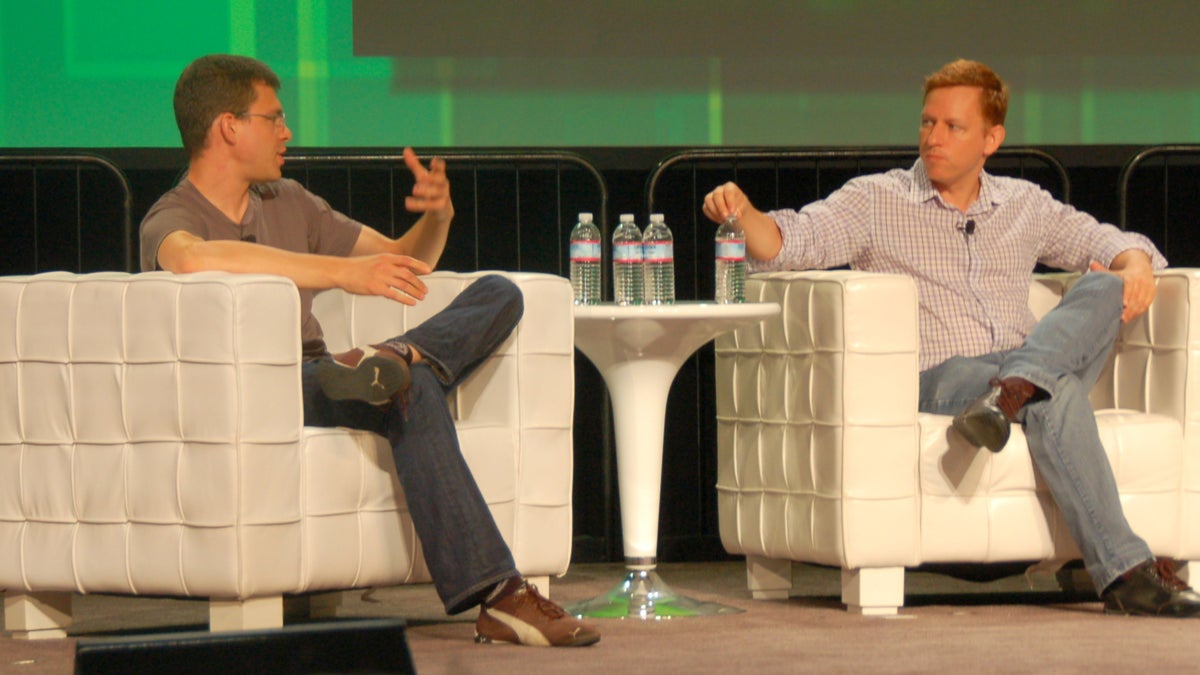 Why You Can Trust CNET
Why You Can Trust CNET Peter Thiel, Max Levchin: U.S. tech innovation almost dead
Their book damning U.S. innovation isn't out yet, but we get a preview at the TechCrunch Disrupt conference.

SAN FRANCISCO--Peter Thiel and Max Levchin's upcoming book, "The Blueprint," is going to annoy or charge up (or both) entrepreneurs here in the U.S.
Thiel and Levchin, two of the PayPal co-founders, maintained in an interview here today at the TechCrunch Disrupt conference, that in the U.S., which holds itself up as a beacon of innovation and entrepreneurship, innovation is "between dire straits and dead."
They maintain that we're not solving hard problems anymore, and they lay the blame, indirectly, on the innovations that have gotten us to where we are. As Levchin says, it used to be that if the project you were working on was hard to do, you thought it was valuable. Now, it's so easy to start a business or launch a company, that people have started thinking that if it's hard to do, it's not as smart as doing something much easier.
Both Levchin and Thiel remind us that you can take something that looks easy, make it hard, and change the world. As Thiel said, before Google, people thought search was solved, and uninteresting. Google, "reconceptualized it as a difficult problem," and from that position won a near-monopoly on the space.
We have become complacent, says Thiel, who has been offering dire predictions about the stagnating pace of technological change for some time, and our culture reflects it. He points to transportation. As technology advances, we should be moving around more quickly. But we're not. The Concorde is retired, our trains are slow, and post-9/11 security restrictions make door-to-door air travel slower than ever.
The solution? "Aim ridiculously high," says Levchin. He points to the moon, and all the technology we got from the space program. We're not doing that anymore, he says.
On this point, I disagree. For all its horrible economic and social costs, the "war on terror" has actually given us a lot of very important technology: Data mining, aerial drones, robotic technologies, large-scale integrated communication systems, materials science (armor) and even, to an extent, mobile social networks.
I look forward to reading this book and will keep an open mind. And, to be clear, no matter where innovation is today, if Levchin and Thiel can, by hook or crook, make people more innovative, I'm all for it.

